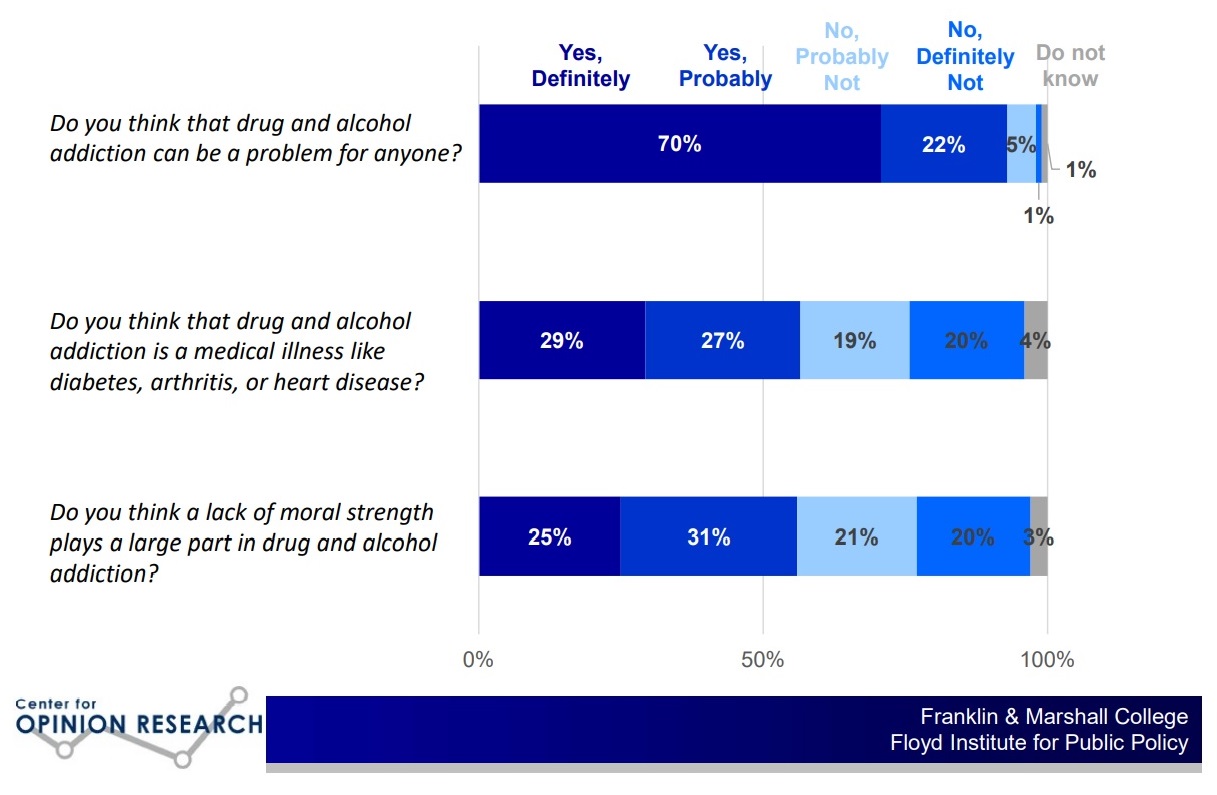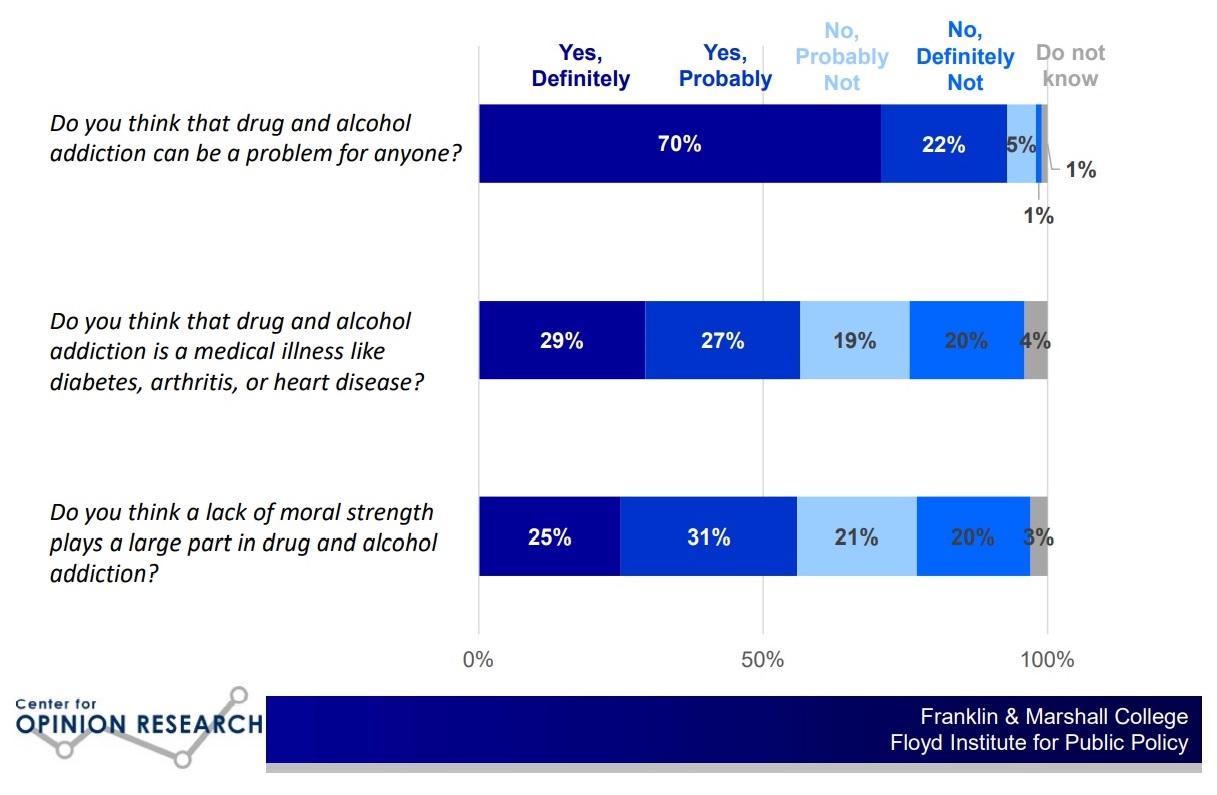Berwood Yost, inset, oversees the Center for Opinion Research at Franklin & Marshall College. (Photo: Tim Stuhldreher) At right is a portion of the center's research on local attitudes toward addiction. Click to enlarge. (Source: Center for Opinion Research)
The first-ever comprehensive survey of attitudes toward drug addiction in Lancaster County yielded some "deeply concerning" findings, Berwood Yost said.
Yost is the director of the Center for Opinion Research at Franklin & Marshall College. He spoke Thursday at the spring community forum of Joining Forces, a coalition of law enforcement, medical and social service agencies combating addiction and providing treatment programs.
Yost and his team collaborated with Joining Forces last year on a countywide survey to gauge stigma related to addiction. While some of the results were encouraging, others raised important questions about community attitudes, Yost said.
For context, the survey compared attitudes toward addiction with those toward mental illness. The differences were clear.
More than half of survey respondents said a lack of moral strength definitely or probably plays a large part in drug and alcohol addiction. And while respondents were more likely to identify discrimination against people with drug addiction as a serious problem (24%) versus discrimination against mentally ill people (14%), they were also more willing to countenance discriminatory treatment of the former.
Specifically:
- A full 44% of respondents said landlords should "definitely" or "probably" be able to deny housing to people with drug addictions, versus 13% who said so about mentally ill people.
- Nearly two-thirds (64%) said employers should "definitely" or "probably" be able to deny jobs based on a drug addiction, versus 25% based on a mental illness.
- Respondents were significantly more willing to accept a mentally ill person than an addicted person working with them (85% vs. 44%), living with them (78% vs. 30%) or marrying into their family (74% vs. 29%).
Such attitudes impede individuals' efforts to recover from addiction, Joining Forces said in a report (PDF) accompanying and analyzing the survey's findings.
When they internalize the notion that addiction reflects a failing of willpower, and when the community at large avoids them, it saps the motivation to pursue recovery, Joining Forces said.
Discrimination in housing and employment, meanwhile, can interfere with the stable housing, meaningful daily routines and social relationships that contribute to healing, it said.
Other findings
Additional results from the Joining Forces / Center for Opinion Research survey:
- 13% of respondents reported having had a substance abuse problem themselves, but only 5% said they sought treatment;
- 73% said they knew a family member or friend who had or has a substance abuse problem;
- Large majorities said people can return to productive lives following treatment for addiction (90%) or mental illness (88%);
- Respondents were more skeptical that treatment can provide effective symptom control for addiction than for mental illness (59% vs. 75%).
In another section of the survey, 56% of respondents said addiction is a medical illness like diabetes or arthritis, versus 39% who disagreed.
"Increasing the belief that addiction is a medical condition with effective and available treatment may help increase acceptance of medication assisted treatment and encourage people to seek help from medical providers," Joining Forces said.
Yost called for employing "research-based strategies to address negative attitudes and stigma" to reduce overdose deaths.
The findings are based on a survey of 591 Lancaster County residents who completed an interview either by phone (397 people) or online (194 people). The survey results were weighted to reflect Lancaster County's demographic data. The sample error is +/- 5.6 percentage points. There may be additional error due to inaccurate self-reporting or "non-response" bias -- that is, people who chose not to participate may have different attitudes about the topics covered than those who took part.








